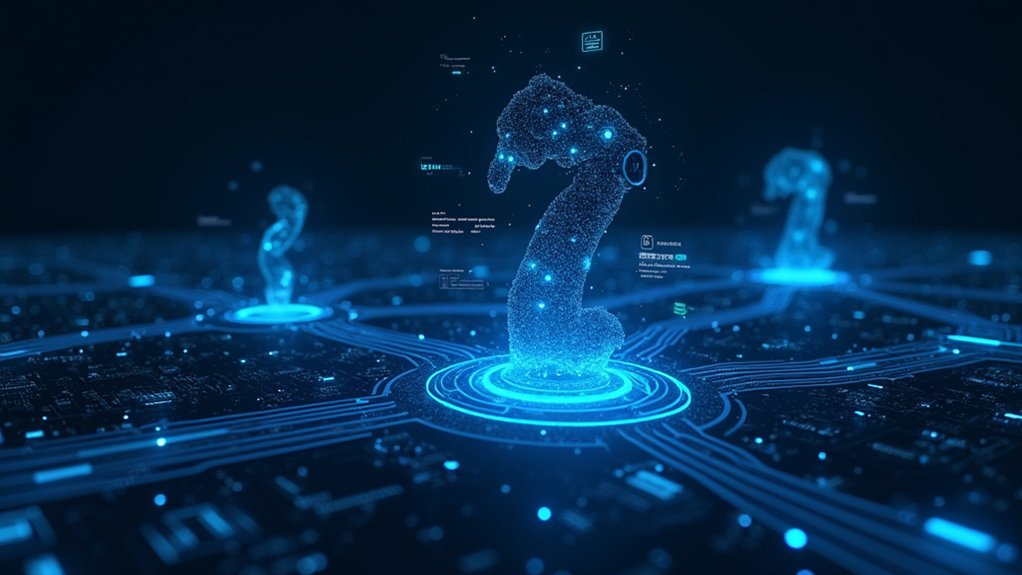The revolution is here, and it’s thinking logically. AI systems now routinely crunch massive datasets and spit out conclusions faster than humans ever could. These digital brains apply structured logical inference through deductive, inductive, and abductive methods. Pretty impressive, right? They’re taking over repetitive tasks, finding fraud patterns, and making recommendations based on logical frameworks that would make Aristotle jealous.
But let’s not get carried away. These silicon thinkers still stumble with commonsense reasoning. AI models like GPTs particularly struggle with analogies, limiting their ability to transfer knowledge between domains. They struggle with ambiguity and context-specific scenarios. Many operate as “black boxes” – good luck figuring out how they reached their conclusions. And achieving human-level commonsense reasoning? That’s what experts call an “AI complete” problem. Translation: really hard.
The educational landscape is changing too. AI tools like Socratic and Photomath provide instant feedback on logical problems. Kids are learning with AI-driven simulations and games. Minecraft: Education Edition isn’t just fun; it’s teaching strategic thinking.
But there’s a flip side. Over-reliance on AI risks cognitive offloading. Use it or lose it applies to our brains too. The integration of knowledge representation frameworks enables AI systems to store and retrieve information efficiently, making them increasingly powerful reasoning tools.
Neuro-symbolic AI represents the cutting edge here. It’s merging neural networks with symbolic systems – basically combining data learning with rule-based logic. The goal? More human-like intelligence that can both learn and reason. This approach improves explainability and builds trust. Critical for applications like medical diagnosis.
How can we ascertain if AI reasoning is improving? Benchmarks. Tests like LogiGLUE and HellaSwag measure everything from deductive reasoning to commonsense knowledge. Chain-of-Thought prompting is making progress by breaking complex reasoning into logical steps.
The future? AI will continue enhancing our logical capabilities while presenting new challenges. The machines aren’t replacing human reasoning. Not yet. But they’re definitely changing how we think, learn, and solve problems. The question isn’t whether AI will impact logical reasoning. It already has.




